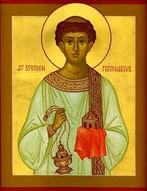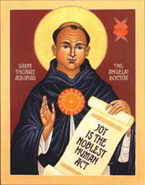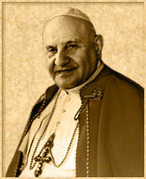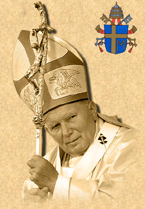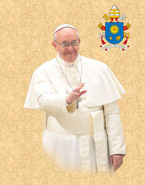An authentic updating of sacred music can take place only in the lineage of the great tradition of the past, of Gregorian chant and sacred polyphony. Commentary: It is a great certainty that many Catholics around the world would rather not have heard or read the above statement made by the Holy Father. It is something they would have been more comfortable dismissing as a sentiment of "Roman domination" or "Western imperialism" rather than a prescription that truly bespeaks the mind of the Church.
For decades, especially since a good number of Catholics have begun adopting and mimicking Protestant-type contemporary praise-and-worship music, heated debates have taken place on what sort of music would be considered a legitimate updating of the Church's traditional liturgical music. Conveniently, many communities have embraced the sentimentality and sensationalism of modern popular music. The reason given is that "the Church does not explicitly forbid it, therefore it is permitted". Such an elusive way of interpreting the permissibility of certain genres of music for liturgical use truly fails to reflect the sentire cum ecclesia principle. To be so legalistic about what is permitted and what is not permitted, in black and white, simply is an exercise born out of self-will, not out of love for the Church. A hermeneutic which speaks of love for the Church would function in accordance with what would please the Church; one desires to please the Church because one loves the Church. This attitude separates the legalistic from the beloved. The Church has gone so far in her openness to permit the use of polyphony in her liturgical music. However, this does not mean there are no limits imposed on how far poliphony can go. The extent to which our new liturgical music can depart from the old is limited by the imperative of maintaining continuity with the great tradition of the past. Any endeavours to update our liturgical music must not depart so whimsically from the great tradition that it no longer sounds familiar to the ears of the ancient Church. So if we are now thinking of liturgical music that radically departs from what the Church has been familiar with for centuries, as many of us have done (and badly, at that), we need to think again what radical obedience to the Church truly means. A friend of mine says, "We are servants of the liturgy, not its masters".
0 Comments
Leave a Reply. |
Categories
All
Archives
December 2021
|
|
FOLLOW DEACON SHERMAN DEACON'S FORMATION FB GROUP
© 2021 Sherman Kuek. All rights reserved.
|

 RSS Feed
RSS Feed

